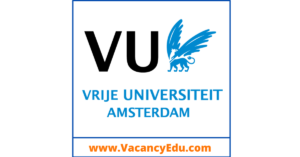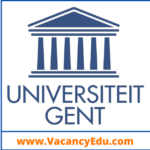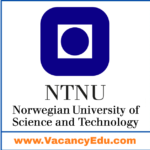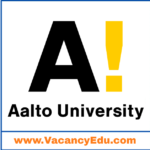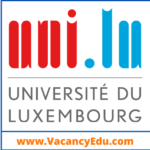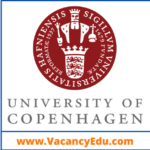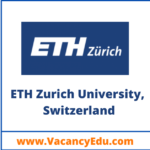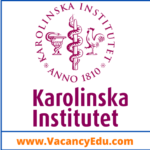Vrije University Amsterdam, Netherlands invites online Application for number of Fully Funded PhD Degree at various Departments. We are providing a list of Fully Funded PhD Programs available at Vrije University Amsterdam, Netherlands.
Eligible candidate may Apply as soon as possible.
(01) PhD Degree – Fully Funded
PhD position summary/title: PhD position – Laser cooling and trapping Helium molecules
We are looking for a motivated and interested PhD-student, with a degree in physics or chemistry and with experience in laser physics, spectroscopy, and/or optical technology, who wishes to work with us in the international and stimulating environment of the joint Quantum Metrology group at LaserLaB Amsterdam.
This project aims to create the first ultracold gas of a directly laser-cooled homonuclear molecule, the helium dimer He_2. Starting from a supersonic beam, novel laser slowing and cooling techniques will be employed to create a trapped dense gas of ultracold molecules. Choosing the He_2 molecule constitutes a paradigm change in the field of ultracold molecules, as it will constitute the lightest and simplest molecule ever laser-cooled. This provides a controllable, simple 4-electron system at record low temperature, allowing quantum sensing and precision measurements to test QED and to study the quantum nature of collisions with unprecedented accuracy – while being accessible to highly accurate ab initio computational methods.
During the PhD, you will engage with various aspects of experimental physics, including ultrahigh vacuum, CAD design, optics and lasers, electronics, and scientific programming. There is also the possibility to delve into the theory of molecular Rydberg states and collisions using scattering theory.
Deadline : 28-2-2025
(02) PhD Degree – Fully Funded
PhD position summary/title: 3 PhDs, Digital Twins, Operational Analytics, and Reconfigurable Computing
Massive virtual worlds are online environments where users share joint experiences for entertainment, education, and commerce. The most popular examples of online worlds are multiplayer games like Minecraft and Fortnite, with player-modifiable worlds enabling rich interaction. Next-gen virtual worlds have tighter performance requirements as they are accessed from Virtual Reality headsets and support modifiable virtual environments (MVEs). Performance problems can directly cause the user to be nauseous. We expect next-gen virtual worlds that take advantage of the compute continuum from the user’s device to a large datacenter.
Experimentation across the compute continuum with diverse devices, large datacenters, large-scale networks, and deep software stacks is expensive and complex. Digital twins solve this problem by replicating the real-world infrastructure in software and responding to changes the same way the original infrastructure would. This enables users to ask counterfactual questions ranging from simple, “What is the performance impact of new hardware?”, to complex, “How will the new AI software stack change my profit margin?”
In this project, the candidate will design and implement software to run massive virtual worlds (10,000+ users) on the Kubernetes platform. The candidate will build a digital twin of the virtual worlds and Kubernetes using, for instance, the in-house data center simulator developed by our group the OpenDC simulator (https://opendc.org/). The user will use this toolkit composed of the digital twin and real-world software to run experiments that would be impossible using just the real-world software or the digital twin.
Deadline :31-3-2025
View All Fully Funded PhD Positions Click Here
(03) PhD Degree – Fully Funded
PhD position summary/title: PhD candidate on the role of type VII secretion systems in mycobacterial warfare
You will be part of an international and interdisciplinary consortium, funded by an ERC Synergy grant, focusing on the central roles of mycobacterial type VII secretion systems in intra- and inter-kingdom warfare.
All bacteria interact with other living organisms, whether they live within microbial communities or cause disease in higher eukaryotic hosts. A major way bacteria interact is through extracellular proteins secreted by numerous secretion systems, of which type VII secretion systems (T7SSs) are the most abundant in mycobacteria. These transport systems are best known to be involved in crucial host interactions of pathogenic mycobacteria, such as the deadliest bacterial pathogen for humans, Mycobacterium tuberculosis (Mtb). The ERC-project follows up on recent findings by the consortium that both the roles of T7SSs and their substrates are more diverse than thus far thought. Within this program, you will focus on one of the recently discovered new roles, namely in killing competing bacteria by secreting toxins. You will study the role of a T7SS in interbacterial killing, identify new T7SS substrates by extensive proteomic analysis, and identify the mode of action and the mechanism of secretion of a selection of toxins. For this, you will learn and use a wide range of state-of-the-art genetic and molecular approaches, combined with advanced mass spectrometry and high-resolution fluorescence microscopy. You will extensively collaborate with the other groups in the consortium, based in Lausanne, Hamburg and Newcastle.
Deadline : 25-2-2025
(04) PhD Degree – Fully Funded
PhD position summary/title: PhD position in extreme value theory for survival and cure analysis
This project will develop statistical methods and theory for analyzing time-to-event data when a fraction of the population is immune to the event of interest (‘cured’). For example, in oncology the event of interest is cancer relapse/death, and the cured patients after treatment will never experience the event. However, in absence of a lifetime follow-up, cured patients cannot be distinguished from the uncured ones who do not show signs of the disease. A major constraint of most existing methods for cure models is the sufficient follow-up assumption, i.e. the study duration should be longer than the time span of possible events, which is rarely satisfied in practice. In this project, we will develop methods that relax this assumption by making use of extreme value theory (EVT) to extrapolate beyond the study duration. EVT has been well established for tail modeling and statistical inference on rare events that lie outside the range of the available data. We foresee applications of the developed methodology in several fields, but within this project we will focus on applications in oncology and credit scoring (for default prediction).
Deadline : 31-3-2025
(05) PhD Degree – Fully Funded
PhD position summary/title: PhD position: Recording in social interaction
Modern societies since the turn of the century have been increasingly suffused with video recording devices. This change has come along with the amplification of observability, blurring the boundaries between local and external situations, and between private and public spheres. Body-worn cameras and bystander video, for instance, have transformed policing into a ‘high visibility’ occupation; unmanned drones and AI facial recognition are rapidly becoming embedded in the surveillance state; and, of course, smartphone cameras have created en masse a population of amateur videographers. This PhD project trains its focus on the ad hoc everyday usage of personal recording devices in actual social interactions.
Consider how wielding a smartphone constitutes a meaningful action, one which was not possible before the commercial availability of such portable technologies. To aim your smartphone camera on some scene suggests to observers that the scene is worth recording and invites them to inspect it for whatever interest is to be found there. This act of recording takes on heightened significance when brought into social interaction. Consider an on-duty police officer who decides to activate his body-worn camera, or a customer who begins recording while making a complaint at a restaurant. In these situations, the camera and the act of recording become foregrounded as integral components of the participants’ interaction.
Despite its mundane recognizability and its key place in debates about ‘cancel culture’, ‘Karens’, and our censorious mediatized age, this phenomenon—the action of recording others in social interaction—has received insufficient attention. The aim of this PhD project is therefore to arrive at an empirically-grounded account of how participants in different everyday settings use the camera as an object for action in interaction.
Deadline : 1-3-2025
Polite Follow-Up Email to Professor : When and How You should Write
Click here to know “How to write a Postdoc Job Application or Email”
(06) PhD Degree – Fully Funded
PhD position summary/title: PhD in Quantum Logic Spectroscopy – Precision measurements of trapped H2+ ions
We are looking for a motivated PhD student, with a degree in physics or physical chemistry and with experience in atomic/molecular/optical physics and/or molecular spectroscopy, who wishes to work with us in the international and stimulating environment of the joint Quantum Metrology group at LaserLaB Amsterdam.
This project aims to measure the level structure of weakly-bound molecular states of H2+ with unprecedented accuracy using novel quantum technologies. These transitions in the microwave and THz range are particularly sensitive to the proton-to-electron mass ratio (mp/me) and exotic spin-dependent interactions. For this, you will be involved in developing a novel cryogenic ion trap for quantum-logic spectroscopy using H2+ (spectroscopy) and Be+ (logic) ions. You will develop a continuous-wave laser system at 313nm to laser cool Be+ ions, which are then used for sympathetic cooling of the molecular ions. The molecular ions are selectively prepared by field-ionizing the optically excited molecular Rydberg states of H2 (we use extreme-UV light at 90nm, UV and visible laser light). To guide the experimental developments and understand the measured spectra, you will dive into the details of the molecular Hamiltonian, advanced angular momentum theory, optical Bloch equations, laser cooling simulations, and many other topics.
During the PhD, you will engage with various aspects of molecular spectroscopy and experimental physics, including cryogenics, ultrahigh vacuum, CAD design, optics and lasers, electronics, and scientific programming. There is also the possibility of delving into the theory of molecular Rydberg states, photoionization, and photodissociation using multichannel quantum-defect theory.
Deadline : 28-2-2025
(07) PhD Degree – Fully Funded
PhD position summary/title: PhD position “Short and long-term cost-effectiveness of health interventions”
In a world where healthcare budgets are limited, healthcare decision makers are faced with difficult decisions about how to spend the available resources as efficiently as possible. Economic evaluations can support such decisions by relating the investments needed for a health intervention with the health gains generated by that intervention.
At our research group, we now have a position available for a 4-year full-time PhD student in the field of economic evaluations. You will be involved in three European projects and will be tasked with conducting the cost-effectiveness analyses that are part of these projects. Two of these projects are on the treatment of Crohn’s disease and one of them on lifestyle improvement of adolescents and young adults in Kenia and Ghana. You are expected to assess the short-term cost-effectiveness of the interventions by performing an economic evaluation alongside the trials conducted in these projects. To extrapolate these short-term findings to a longer term follow-up period you will develop and analyze health-economic models.
This PhD position will be embedded in the research group Health Technology Assessment (HTA) at the Department of Health Sciences. We are involved in applied and methodological HTA studies in a wide variety of clinical areas (for example musculoskeletal health, mental health, and nutrition and lifestyle).
Deadline :2-3-2025
(08) PhD Degree – Fully Funded
PhD position summary/title: PhD position: Effects of paludiculture on peat soil carbon dynamics.
Drained Dutch peatlands currently emit large quantities of greenhouse gasses because of peat degradation. At the same time, these peatlands also hold the potential to capture and store carbon when developed as natural or production wetlands (paludiculture). You will study the effects of peatland paludiculture on greenhousegas emissions and conservation of the peatsoils. Especially you will focus on the links between emissions, soil processes, and soils changes as a result of paludiculture. During the recent years we have already observed that paludiculture takes up CO2 , emits methane, and changes the stability and composition of the peatsoil. However, where, when, and how carbon is released, stored and changed within the plant-peat-soil continuum, how peat soils change under influence of paludiculture, and the longevity of the paludiculture system on peat soils are the open research questions that you will explore.
Deadline :2-3-2025
Click here to know “How to Write an Effective Cover Letter”
(09) PhD Degree – Fully Funded
PhD position summary/title: PD-position: Can peat salinization or acidification combat climate change?
Dutch peat soils emit large quantities of greenhouse gasses because of peat degradation. Current emission reduction measures include raising the water table, passive and active water infiltration and paludiculture. These measures require large amounts of fresh water which, especially in the current climate, can cause problems in dry summers. You will study alternative soil-based mitigation measures and the effects of brackish water use on net GHG emissions.
We offer an exciting 3-year postdoc position at the Vrije Universiteit in an interdisciplinary peatland research team (4 Postdocs, 4 PhD students and 4 senior researchers). This VU-team is closely linked to the National Research Program on Greenhouse Gases in Peatlands (NOBV). The NOBV program already established a national monitoring network to quantify emissions from Dutch peat soils and evaluate mitigation measures. This monitoring network and its datasets form an unique starting point and research infrastructure for the whole research team.
Deadline : 23-2-2025
(10) PhD Degree – Fully Funded
PhD position summary/title: PhD-Position: Mitigating Greenhouse Gas Emissions from Peatlands in Agriculture
Drained Dutch peatlands currently emit large quantities of greenhouse gasses due to peat degradation. Current emission reduction measures include raising the water table, passive and active water infiltration and paludiculture. You will further develop our understanding of GHG emissions of these peatlands and moreover study alternative land-management measures, specifically clay additions, on GHG emissions
We offer an exciting 3-year Postdoc position at the Vrije Universiteit in an interdisciplinary peatland focused research team (4 Postdocs, 4 PhD students and 4 senior researchers). This team directly links to the National Research Program on Greenhouse Gases from Peatlands (NOBV). The NOBV program already established a national monitoring network to quantify emissions and evaluate mitigation measures. We are using flux chamber and Eddy Covariance techniques to continuously track greenhouse gas fluxes (CO2, nitrous oxide, and methane) from Dutch peat soils with up to 5 years of high quality data. This monitoring network and its datasets form a unique starting point and the research infrastructure for the whole research team.
Deadline : 23-2-2025
Connect with Us for Latest Job updates
(11) PhD Degree – Fully Funded
PhD position summary/title: PhD Position in Advancing Explainable AI for Knowledge Extraction
As a PhD student, you will explore how to enhance the capabilities of state-of-the-art methodologies that rely on large language models (e.g. GPT, LLaMA, and BERT models) for knowledge extraction and inference. While these models are powerful, they lack the correctness and explainability guarantees essential for critical applications. Your research will focus on integrating and constraining machine learning extraction techniques with formal constraints, such as those found in the area of knowledge representation and reasoning. You will investigate various approaches, including leveraging knowledge graphs, ontology and embeddings, to improve the accuracy and transparency of these models. Additionally, your work will integrate technical documentation with established inference rules, enhancing the accuracy and reliability of predictions. Towards the end of your PhD, you will have the unique opportunity to validate your findings in a real-world setting with the industrial partners of the Zorro project.
Our PhD students are expected to publish and their work at venues such as general AI conferences (e.g. AAAI, IJCAI, ECAI and UAI), as well as Machine learning venues (e.g. NeurIPS, ICLR, and ICML), NLP conferences (like ACL and EMNLP) and other major domain-specific conferences such as WebConf, ISWC, KR, NeSy, and CIKM.
As a university, we strive to cultivate a welcoming and supportive community for researchers while championing equal opportunities for all. KAI and L&R, two exceptional teams that originated from the KR&R team, embody this spirit. We value diversity in all its forms, recognizing its richness enhances the quality of our teaching, research, and services. By actively seeking talent from diverse backgrounds and experiences, we are committed to creating an inclusive environment where diversity is celebrated as a vital strength.
Deadline :10-3-2025
Polite Follow-Up Email to Professor : When and How You should Write
(12) PhD Degree – Fully Funded
PhD position summary/title: PhD position in algebraic topology
The Department of Mathematics of Vrije Universiteit Amsterdam welcomes applications for a fully-funded, 4-year PhD position in Algebraic Topology. This PhD position will be under the supervision of Dr Inbar Klang, with additional mentoring by Dr Magdalena Kedziorek and Dr Steffen Sagave from Radboud Universiteit Nijmegen. It is a part of the NWO-XL project “Symmetry on the interface of topology and higher algebra”, joint between Vrije Universiteit Amsterdam, Radboud University Nijmegen, and Utrecht University. As such, you will be part of the large and active algebraic topology group across all three universities, as well as the varied, active, and welcoming topology group at the Vrije Universiteit. We are an inclusive, interdisciplinary group, and diversity and internationalism are at the heart of our research principles, as well as our teaching practice.
Deadline : 10-3-2025
(13) PhD Degree – Fully Funded
PhD position summary/title: PhD position in area of topological data analysis
The Department of Mathematics of Vrije Universiteit Amsterdam welcomes applications for a fully-funded, 4-year PhD position in topological data analysis. The candidate will work on developing the mathematical foundations of multiparameter persistent homology. The position is part of the VIDI Project “New Connections in Topological Data Analysis”, and will be supervised by Magnus Bakke Botnan. In addition, the student will be a member of the Center for Topology and Applications Amsterdam (www.cta2.nl).
We are an inclusive, interdisciplinary group, and diversity and internationalism is at the heart of our research principles, as well as our teaching practice.
Deadline : 16-3-2025
About The Vrije University Amsterdam, Netherlands –Official Website
The Vrije Universiteit Amsterdam is a public research university in Amsterdam, Netherlands, founded in 1880, and consistently ranks among the top 150 universities in the world by major ranking tables. The VU is one of two large, publicly funded research universities in the city, the other being the University of Amsterdam (UvA). The literal translation of the Dutch name Vrije Universiteit is “Free University”. “Free” refers to independence of the university from both the State and the Dutch Reformed Church. Both within and outside the university, the institution is commonly referred to as “the VU”. Although founded as a private institution, the VU has received government funding on a parity basis with public universities since 1970. The university is located on a compact urban campus in the southern Buitenveldert neighbourhood of Amsterdam and adjacent to the modern Zuidas business district.
In 2014, the VU had 23,656 registered students, most of whom were full-time students. That year, the university had 2,263 faculty members and researchers, and 1,410 administrative, clerical and technical employees, based on FTE units. The university’s annual endowment for 2014 was circa €480 million. About three quarters of this endowment is government funding; the remainder is made up of tuition fees, research grants, and private funding.
The official university seal is entitled The Virgin in the Garden. Personally chosen by Abraham Kuyper, the Reformed-Protestant leader and founder of the university, it depicts a virgin living in freedom in a garden while pointing towards God, referring to the Protestant Reformation in the Netherlands in the 16th and 17th century. In 1990, the university adopted the mythical griffin as its common emblem.
Disclaimer: We try to ensure that the information we post on VacancyEdu.com is accurate. However, despite our best efforts, some of the content may contain errors. You can trust us, but please conduct your own checks too.
Related Posts
- PhD Degree (20)-Fully Funded at Ghent University, Belgium

- PhD Degree (22) -Fully Funded at NTNU, Norway

- PhD Degree (05) -Fully Funded at Aalto University, Finland

- PhD Degree (20) -Fully Funded at Luxembourg, Luxembourg

- PhD Degree (23) -Fully Funded at University of Copenhagen, Denmark

- PhD Degree (31) -Fully Funded at University of Southampton, England

- PhD Degree (24 )-Fully Funded at ETH Zurich, Switzerland

- PhD Degree (13)-Fully Funded at Karolinska Institute, Sweden

- PhD Degree (11) -Fully Funded at Cranfield University, England


